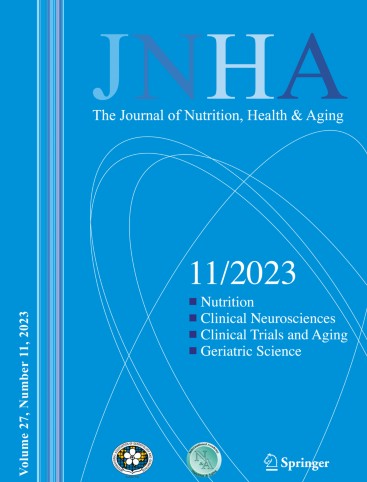Effects of Resistance Exercise Training on Cognitive Function and Physical Performance in Cognitive Frailty: A Randomized Controlled Trial
IF 4
3区 医学
Q1 GERIATRICS & GERONTOLOGY
引用次数: 0
Abstract
Background
Cognitive frailty is defined as the presence of both physical frailty and cognitive impairment (clinical dementia rating score = 0.5), in the absence of dementia. It is characterized by concurrent physical frailty and potentially reversible cognitive impairment. In this study, we sought to elucidate the effects of high-speed resistance exercise training on cognitive function and physical performance in older adults with cognitive frailty.
Methods
We conducted a parallel-group, randomized controlled trial involving community-living older adults with cognitive frailty. The participants' mean age was 73.9 (± 4.3 SD) years, and 69.8% (n=30) were female. Two different 4-month interventions included high-speed resistance exercise training group (n=22) and a control group (balance and band stretching, n=23). Frailty score, cognitive function (memory, processing speed, cognitive flexibility, working memory, executive function), physical function (SPPB, TUG, gait speed), and muscle strength (grip strength, knee extension strength) were assessed at baseline, 8 weeks, and 16 weeks.
Results
Statistical analysis showed that exercise improved performance significantly in the tests for cognitive function (processing speed and executive function, both p < 0.05), physical function (SPPB, TUG, gait speed, both p < 0.05), and muscle strength (grip strength, knee extension strength, both p < 0.05). However, no significant changes in frailty score were observed between intervention and either control group (p < 0.05).
Conclusion
In conclusion, our findings indicate that high-speed resistance exercise training approaches are effective in improving cognitive function and physical performance in older adults with cognitive frailty. This study shows that it is feasible to identify older adults with cognitive frailty in the community and primary care setting for effective intervention to reduce their level of frailty and cognitive impairment.
阻力运动训练对认知功能和体能表现的影响:随机对照试验
背景:认知功能虚弱是指在没有痴呆症的情况下,同时存在身体虚弱和认知功能障碍(临床痴呆评分 = 0.5)。其特点是同时存在身体虚弱和潜在可逆的认知障碍。在这项研究中,我们试图阐明高速阻力运动训练对患有认知虚弱症的老年人认知功能和身体表现的影响:方法:我们进行了一项平行分组随机对照试验,参与者为社区生活的认知功能虚弱老年人。参与者的平均年龄为 73.9(± 4.3 SD)岁,69.8%(n=30)为女性。为期 4 个月的两种不同干预措施包括高速阻力运动训练组(22 人)和对照组(平衡和带状拉伸,23 人)。分别在基线、8 周和 16 周对虚弱评分、认知功能(记忆力、处理速度、认知灵活性、工作记忆、执行功能)、身体功能(SPPB、TUG、步速)和肌肉力量(握力、伸膝力量)进行评估:统计分析显示,运动能显著改善认知功能(处理速度和执行功能,均为 p <0.05)、身体功能(SPPB、TUG、步速,均为 p <0.05)和肌肉力量(握力、伸膝力量,均为 p <0.05)的测试表现。然而,干预组和对照组的虚弱评分均无明显变化(P < 0.05):总之,我们的研究结果表明,高速阻力运动训练方法能有效改善认知功能衰弱的老年人的认知功能和身体表现。这项研究表明,在社区和初级保健环境中识别患有认知虚弱症的老年人并对其进行有效干预以降低其虚弱和认知障碍程度是可行的。
本文章由计算机程序翻译,如有差异,请以英文原文为准。
求助全文
约1分钟内获得全文
求助全文
来源期刊
CiteScore
7.80
自引率
3.40%
发文量
136
审稿时长
4-8 weeks
期刊介绍:
There is increasing scientific and clinical interest in the interactions of nutrition and health as part of the aging process. This interest is due to the important role that nutrition plays throughout the life span. This role affects the growth and development of the body during childhood, affects the risk of acute and chronic diseases, the maintenance of physiological processes and the biological process of aging. A major aim of "The Journal of Nutrition, Health & Aging" is to contribute to the improvement of knowledge regarding the relationships between nutrition and the aging process from birth to old age.

 求助内容:
求助内容: 应助结果提醒方式:
应助结果提醒方式:


